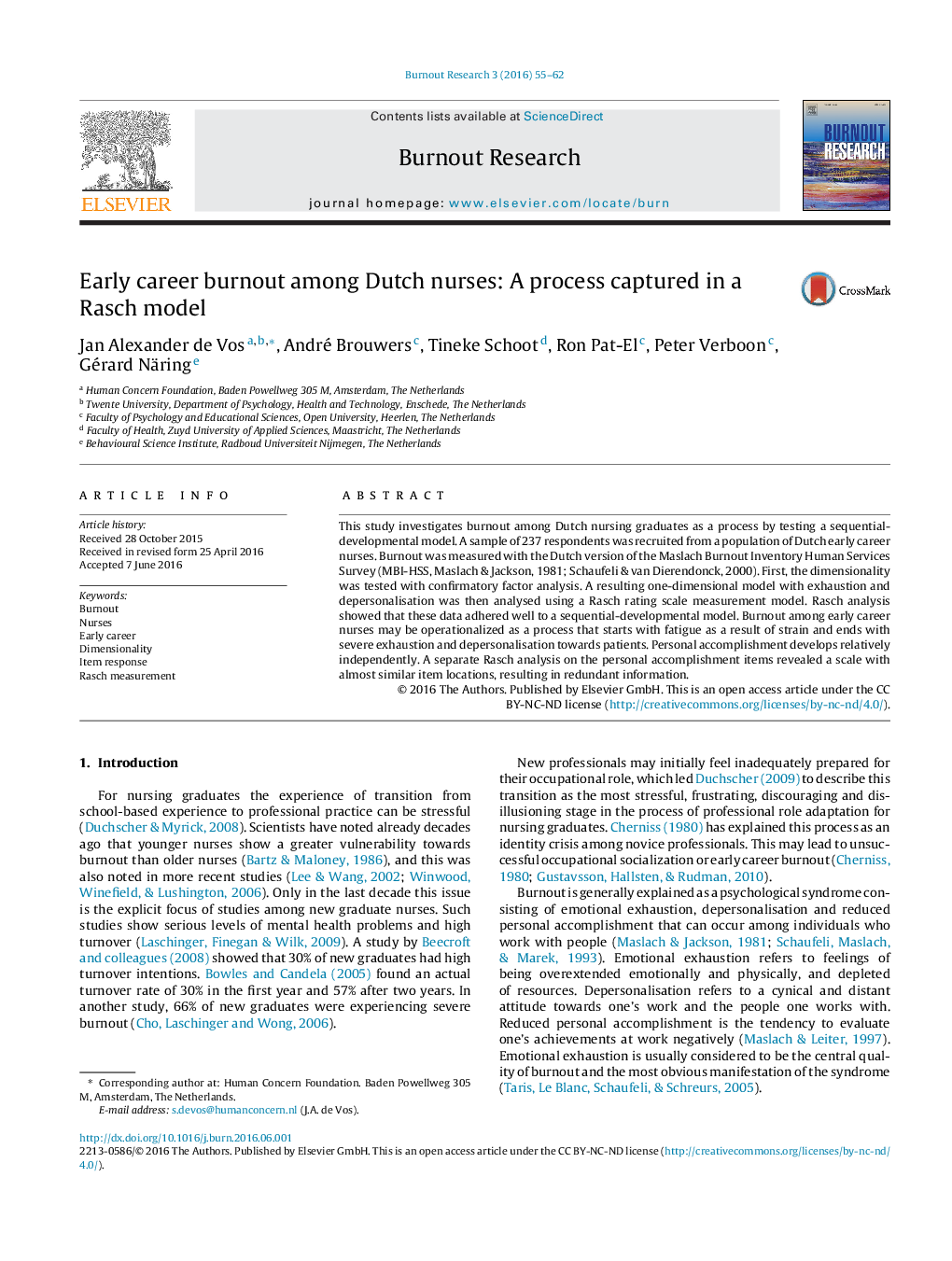| Article ID | Journal | Published Year | Pages | File Type |
|---|---|---|---|---|
| 317369 | Burnout Research | 2016 | 8 Pages |
•This study shows a hypothesized model of early career burnout among nurses as a process consisting of several phases, where personal accomplishment seems to develop independently.•Early career burnout might be explained as a sequential-developmental process which starts with fatigue and ends with severe exhaustion and depersonalisation towards patients.•Items measuring personal accomplishment all have an almost similar difficulty level which makes them not very suitable to measure changes in personal accomplishment that might be associated with changes in levels of burnout.•To understand the role of personal accomplishment in the process of burnout, new measures would have to be developed.
This study investigates burnout among Dutch nursing graduates as a process by testing a sequential-developmental model. A sample of 237 respondents was recruited from a population of Dutch early career nurses. Burnout was measured with the Dutch version of the Maslach Burnout Inventory Human Services Survey (MBI-HSS, Maslach & Jackson, 1981; Schaufeli & van Dierendonck, 2000). First, the dimensionality was tested with confirmatory factor analysis. A resulting one-dimensional model with exhaustion and depersonalisation was then analysed using a Rasch rating scale measurement model. Rasch analysis showed that these data adhered well to a sequential-developmental model. Burnout among early career nurses may be operationalized as a process that starts with fatigue as a result of strain and ends with severe exhaustion and depersonalisation towards patients. Personal accomplishment develops relatively independently. A separate Rasch analysis on the personal accomplishment items revealed a scale with almost similar item locations, resulting in redundant information.
